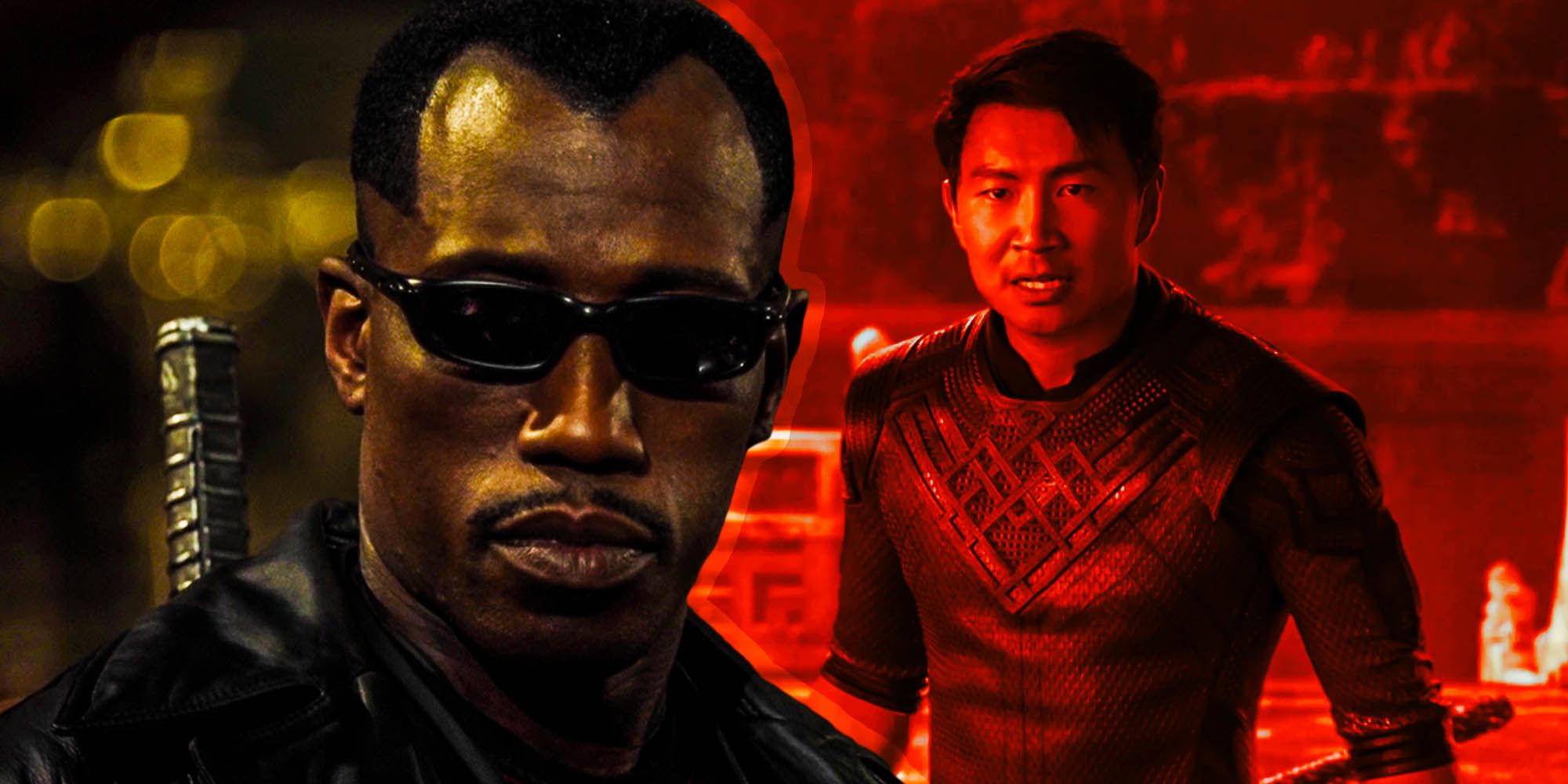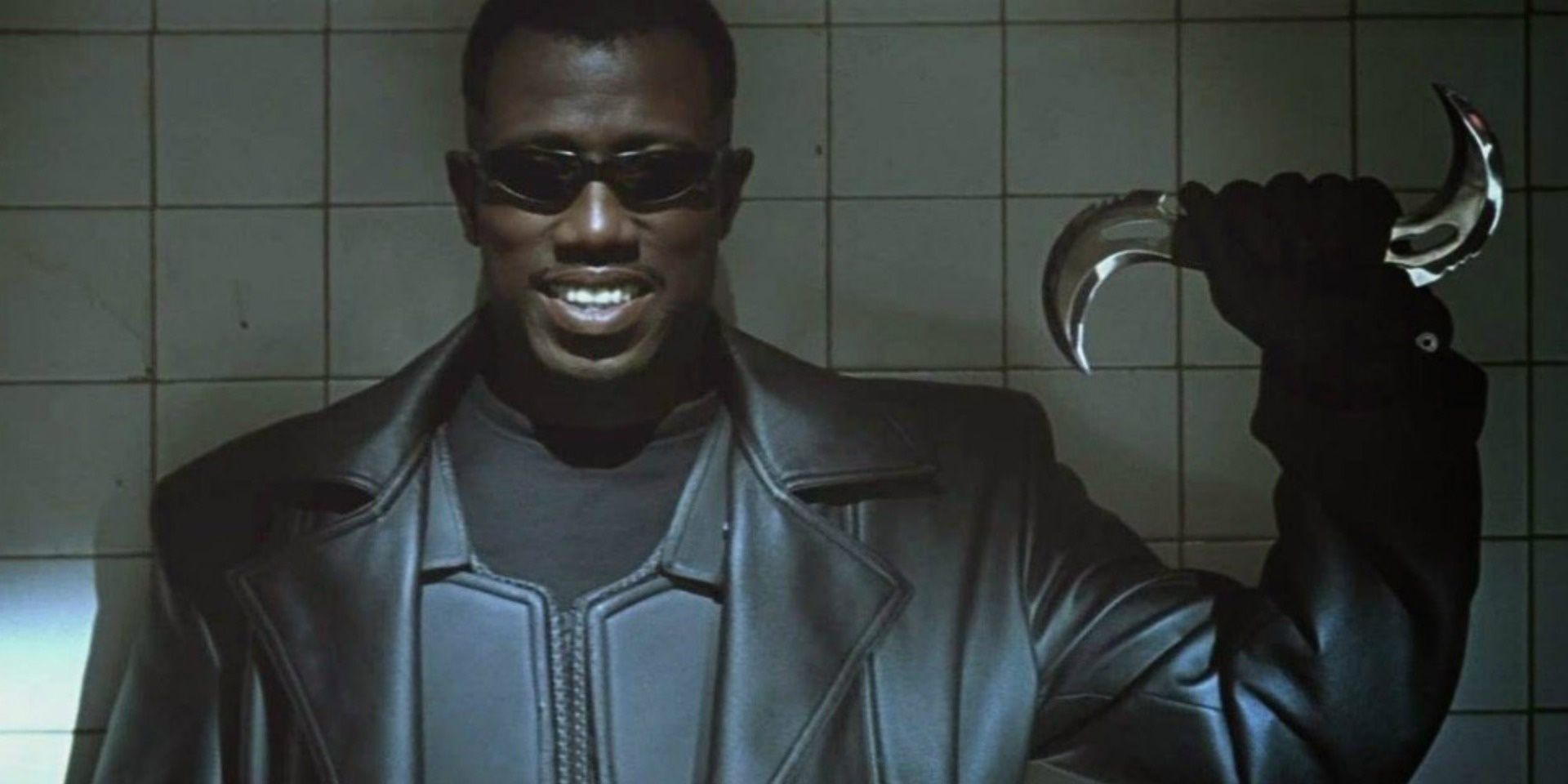Shang-Chi And Blade Both Abandoned Their Backstories (For The Better)

Shang-Chi and the Legend of the Ten Rings creates a whole new backstory for its title character similar to how Blade did. As the newest hero to debut in the MCU, Shang-Chi has a radically different character history from how he began in the pages of Marvel Comics. However, this general retconning of its source material was a wise decision.
Shang-Chi's early comic book days in the '70s and '80s positioned him as both Marvel's answer to Bruce Lee, and the son of Fu Manchu. The film retains certain elements of his comic book history, such as his mastery of kung fu, his early assassination mission, and his arch-enemy being his father. However, the movie otherwise significantly re-imagines Shang-Chi's backstory.
One of the major changes is the introduction of fantasy elements, such as the village of Ta Lo and the villainous dragon, the Dweller-in-Darkness. Shang-Chi's father is also essentially merged into one character with The Mandarin and renamed Wenwu (Tony Leung), completing the retcon of the fake Mandarin seen in Iron Man 3. This brings more fantasy elements into play with the ten rings, and also distances Shang-Chi's father from the racist overtones of Fu Manchu. Shang-Chi (Simu Liu) is possibly the first time the MCU has incorporated such significant changes to a hero's backstory, but the first Marvel adaptation to really hit it big at the movies, Blade, similarly reshaped its own titular hero.

In the comics, Blade was originally a human vampire hunter who possessed an immunity to vampire bites. 1998's Blade presented a different origin for him, with Blade's mother being bitten by Deacon Frost (Stephen Dorff) while pregnant, with the frequently sunglassed Blade inheriting the strengths of vampires while being immune to their weaknesses, earning him the nickname "The Daywalker." Blade's earlier appearance on Spider-Man: The Animated Series had a similar story of Blade having a vampire father, and both had Blade suppressing his thirst for human blood with a specially designed serum.
Blade went on to be a major hit in 1998 and establish Blade himself as a mainstream Marvel character a full decade before the MCU came into existence with Iron Man. Shang-Chi similarly takes a character who, like Blade, wasn't well-known to the general public and turns him into a genuine A-Lister. It's very arguable that both taking certain elements from their character's comic book origins and largely giving them new stories was more beneficial than direct adaptations would've been.
Blade would shape the public's perception of the character, with the MCU's upcoming Mahershali Ali-led reboot, which could debut in Marvel's claimed October 2023 window, will surely follow the same origin as Wesley Snipes' Daywalker. By the same token, Shang-Chi, aside from being a big box office success despite the COVID-19 pandemic, has reshaped much of its own character's backstory in a way that is now sure to be seen as part of his essence. While most superhero movies try to keep their hero's origins largely consistent with their comic book beginnings, Blade and Shang-Chi and the Legend of the Ten Rings both went in the opposite direction, and it massively paid off for both of them.
from ScreenRant - Feed https://ift.tt/3ofePSh
via Whole story

Post a Comment